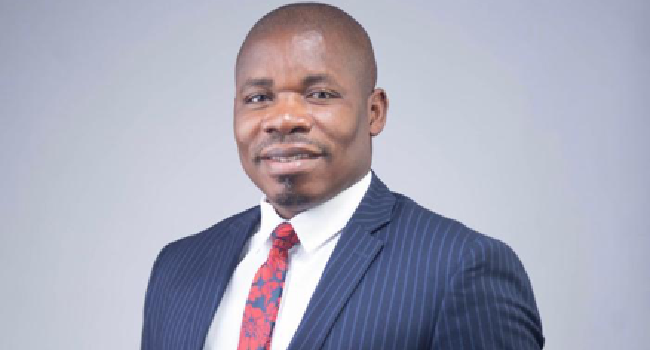News
A new lead at NADDC: What should the industry expect?

Joseph Oluwemimo Osanipin will today (Tuesday) resume duties as Director-General of the National Automotive Design and Development Council (NADDC), following his appointment to that position by President Bola Tinubu.
The president had made the announcement on Friday, October 13, 2023, with the appointment approved to take immediate effect.
With the new appointment, Osanipin may be on the threshold of history, given the direction and determination of the new government to introduce an alternative to fossil fuel combustion engines, and alleviate the hardship caused by the long awaited removal of fuel subsidy.
The NADDC was formed by Act no. 83 of 30th May 2014 from the merger of the National Automotive Council and the Centre for Automotive Design and Development as a Parastatal of the Federal Ministry of Industry, Trade, and Investment. Its mission, which is to “design and implement policies, programmes and strategies for an effective, competitive and diversified private sector-led industrialization process” is pursued through an actualization plan anchored on creating “an enabling environment for the manufacture of Nigerian made vehicles of international standards at competitive prices using local human and material resources”.
With the removal of subsidy on petrol, which has now triggered a cost of transportation crisis, the government has been searching for alternatives to petrol-powered vehicles. Of the options, Compressed Natural Gas (CNG)-powered vehicles and electric vehicles (EVs) have been the most discussed options, with CNG looking like an imminent possibility.
President Tinubu had announced a 100 billion Naira investment in acquisition of CNG passenger buses for transporters, following the removal of subsidy. The buses are planned to be delivered via a long-term, low interest loan for transporters, an arrangement that has attracted mostly positive feedback, especially from the operators themselves.
A major concern, however, has been with the broader adoption of the CNG option. Some observers have pointed to the dangers of a standardization-free adoption. They have called for a clear policy direction regarding guardrails on deployment and use, ensuring that the transition is managed properly in order to deliver the positives, without any detrimental baggage.
To achieve this, the agency mandated and strategically positioned to take on the responsibility of developing or guiding the development of a model for replication and adoption is the NADDC. The council is thus on the threshold of a historic transition. And the president’s latest appointment may have been made with a consideration in mind.
READ ALSO:Tinubu appoints new heads for CAC, SON, NADDC, others to boost trade and investment
An indigene of Oke-Ako Ekiti, Ikole L.G.A, Ekiti State, whose education and career have been principally in Nigeria, the 52-year-old Osanipin is a truly home-grown pick, who will now face perhaps his greatest career challenge yet. The nation will look to him and his team to lead it towards a new era of sustainable and affordable mobility at a most trying time. Osanipin will need to lead efforts towards developing reliable local CNG solutions that will provide relief for Nigeria’s burdened citizens. Their intervention must span policy, design, development and even strategic investment in private sector-led efforts.
On the EV option, whose development long predates the subsidy removal, Osanipin’s resolve will be tested, and his determination stretched as it pertains to entrenching mass adoption that is backed by strategic multi-stakeholder investment in EV production, charging infrastructure and supply chain. Osanipin will have to draw from his experience in the private sector as a carmaker to steer this large ship aright.
Prior to his appointment, Osanipin served as COO of Jet Systems Automobile Industry Ltd. Jet Systems locally produces EVs primarily for the Nigerian and African markets. Their product line ranges from passenger to utilitarian vehicles— ambulances, military vehicles, and delivery vans.
In his role, Osanipin and his team took on the challenge of producing some of the very first set of home-grown electric vehicles to come out of Africa. Their stated mission was to create and deliver affordable and eco-friendly transportation options for Africa by producing a variety of electric vehicles. This took massive investments, strategic partnerships and defiance against odds. Now, the company says it is making progress in its broad plan of investing in a national charging infrastructure to facilitate widespread deployment and adoption. But this journey will now be without Osanipin who must lead the emergence of a public sector-led line of products that can compete across Africa and beyond. This task will be no small one.
A graduate of Management & Accounting from Obafemi Awolowo University, Ife, holder of a Master of Business Administration (MBA) from the University of Benin, Fellow Chartered Accountant (FCA) with ICAN, and a Certified Information System Auditor (CISA) with ISACA, Osinapin will need to draw from his vast knowledge, network and experience to achieve this. He will have to leverage on his over one decade experience financing critical projects as a staff of Africa’s foremost financial institution, Zenith Bank Plc, before he transitioned to the mobility space where he amassed cognate knowledge and experience.
As Nigerians wait with high expectations, they would need to see model leadership, innovation and commitment to development under the new NADDC helmsman.
Join the conversation
Support Ripples Nigeria, hold up solutions journalism
Balanced, fearless journalism driven by data comes at huge financial costs.
As a media platform, we hold leadership accountable and will not trade the right to press freedom and free speech for a piece of cake.
If you like what we do, and are ready to uphold solutions journalism, kindly donate to the Ripples Nigeria cause.
Your support would help to ensure that citizens and institutions continue to have free access to credible and reliable information for societal development.
























